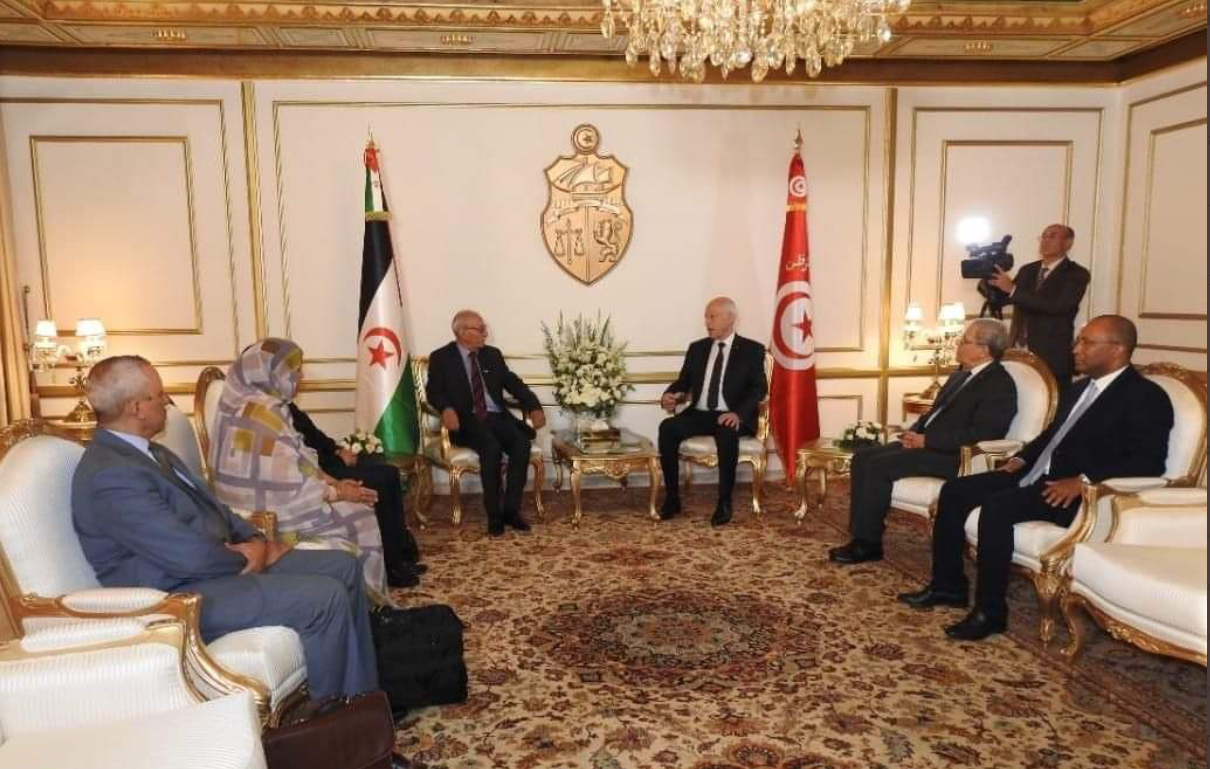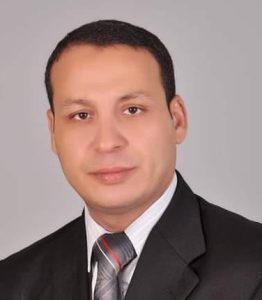Historically, Tunisia has maintained a neutral position towards the Sahara issue, and Tunisian foreign policymakers have been keen to balance the country’s stance towards the Moroccan-Algerian conflict. However, on August 27th Tunisian President Kais Saied met the leader of the Polisario Front, which is participating in the Tokyo International Conference on African Development (TICAD 8) hosted in Tunisia on August 27th and 28th. The meeting sparked an uproar in Moroccan circles, after which Morocco summoned its ambassador in Tunisia for consultations. The Tunisian stance is expected to spark tension in Moroccan-Tunisian relations, and political polarization within Tunisia and the Maghreb region.
On August 27th, Tunisian President Kais Saied officially welcomed the leader of the Polisario Front at Carthage International Airport, holding a lengthy meeting in the airport lobby. This came in the context of the Polisario Front’s participation in the Tokyo International Conference on African Development (TICAD 8), hosted by Tunisia on August 27th and 28th. President Saied’s meeting with the leader of the Polisario Front is a departure in terms of Tunisia’s relations with Morocco, as it has traditionally supported the Moroccan position, and refused to recognize the bid for secession. However, in recent years, especially since Saied assumed Tunisia’s presidency, this position has gradually changed. Tunisia abstained last year from voting in favor of extending the United Nations Mission for the Referendum in Western Sahara (MINURSO) for an additional year, sparking controversy over the implications of the move. The Security Council agreed to extend MINURSO’s mandate for another year, and 13 members supported the resolution, while Russia and Tunisia abstained.
Multiple Implications
President Saied’s position and the participation of the Polisario Front in TICAD 8 in Tunisia have many implications, the most important of which are:
Signaling a change in Tunisian foreign policy: Some observers perceive this new stance as a message to President Saied’s domestic audience, especially the political forces supporting the Moroccan position, indicating Tunisia’s foreign policy will change.
Algerian pressures: Algeria has been trying for years to get the Polisario Front invited to this conference, and it did in fact participate in the latest, the TICAD 7 , held in Yokohama, Japan. The meeting could be the result of Algerian pressure, as Algeria has provided Tunisia with financial support and loans to overcome its social and political issues. Tunisia has appeared to be closer to Algeria lately, with the two countries’ foreign ministers, Othman Al-Grandi and Ramtane Lamamra, exchanging visits. The reopening of land borders between the two countries last July after a closure of more than two and a half years has raised widespread speculation that Algeria has pressured Tunisia to take its side regarding the Sahara issue.
Exploiting Algerian Moroccan tensions. Some observers believe that Tunisia wishes to extract more economic and political support through leveraging the friction between Algeria and Morocco over this issue, especially as the meeting came only days after Moroccan King Mohammed VI declared that “the recognition of Morocco’s sovereignty over the Sahara is what determines its relations with the rest of the world.”
This change in the Tunisian stance is expected to have many repercussions, including:
Tensions in Moroccan-Tunisian relations: The Tunisian position is expected to have a significant impact on Moroccan-Tunisian relations. Morocco decided not to participate in TICAD 8, and immediately recalled its ambassador from Tunisia for consultations. The Moroccan Ministry of Foreign Affairs highlighted that “after Tunisia has recently doubled down on its negative attitudes and behavior towards the Kingdom of Morocco and its interests, its position within the framework of the TICAD 8 came to blatantly confirm this hostile trend.”
Political polarization in Tunisia: Tunisian politicians and leading union figures criticized the step taken by Saied in receiving the leader of the Polisario Front. Abdel Wahab Hani, president of the Tunisian Glory Party, described this as a “dangerous deviation and unprecedented deviation from the tenets of Tunisian diplomacy.” Mohamed El-Asaad Obeid, Secretary-General of the Tunisian Labor Organization, said, “Gaddafi and the presidents of Algeria did not do it in public, an official reception for a group that is recognized by only a few and in dark corners!?” In turn, the Secretary-General of the Tunisian Democratic Current Party, Ghazi Chaouachi, noted that “Saied is heading towards destroying our relationship with brotherly countries, and harming our diplomatic and economic interests.”
Rising tensions in the Maghreb region. It is expected that Tunisia’s stance will be opposed not only by Morocco, but also by international and regional powers that are keen to express their explicit support for the Moroccan position on the Sahara issue. The Tunisian position is likely to be viewed as a Tunisian-Algerian alliance against Morocco. This may push Tunisia closer to the Russian-Algerian axis, as opposed to the American – Israeli-Moroccan axis. Likewise, the situation is expected to affect Tunisia’s relationship with Japan, as the Japanese Foreign Ministry sent a letter to the African Union this August declaring its opposition to inviting the Polisario Front to the conference and emphasizing it does not recognize the so-called Sahrawi Republic.
Shifting Stance
It can be argued that the Tunisian position on the Sahara issue is still inconclusive, despite President Saied’s reception of the leader of the Polisario Front. While this meeting reflects closer Algerian-Tunisian ties, it may at the same time hope to stimulate Algerian-Moroccan competition to co-opt Tunisia.


